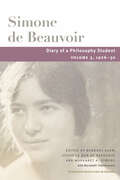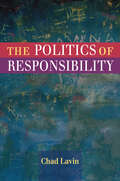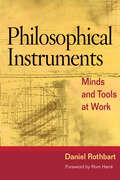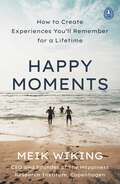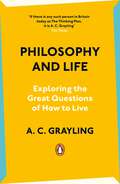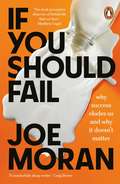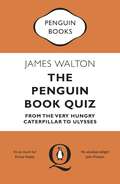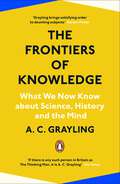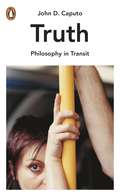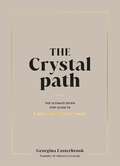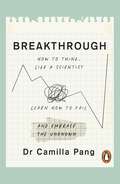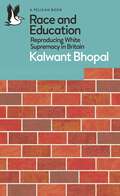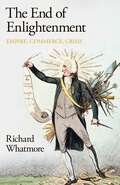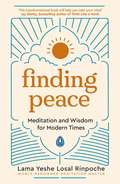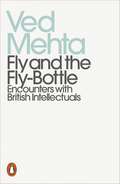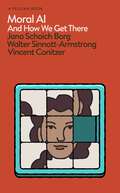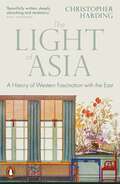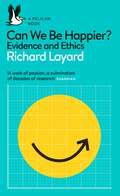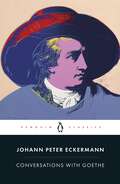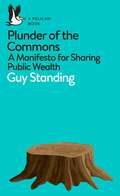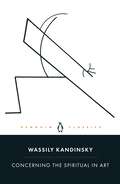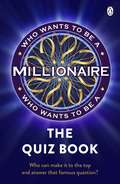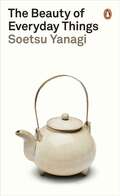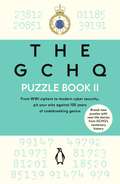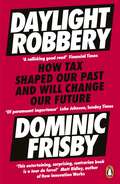- Table View
- List View
Diary of a Philosophy Student: Volume 3, 1926-30 (Beauvoir Series #3)
by Simone de BeauvoirWritten between the age of eighteen and twenty-one, the entries in the third volume of Diary of a Philosophy Student take readers into Simone de Beauvoir’s thoughts while illuminating the people and ideas swirling around her. The pages offer rare insights into Beauvoir’s intellectual development; her early experiences with love, desire, and freedom; and relationships with friends like Élisabeth “Zaza” Lacoin, and Maurice Merleau-Ponty. It also presents Beauvoir’s shocking account of Jean-Paul Sartre’s sexual assault of her during their first sexual encounter--a revelation certain to transform views of her life and philosophy. In addition, the editors include a wealth of important supplementary material. Barbara Klaw provides a detailed consideration of the Diary’s role in the development of Beauvoir’s writing style by exploring her use of metanarrative and other literary techniques, part of a process of literary creation that saw Beauvoir use the notebooks to cultivate her talent. Margaret A. Simons’s essay places the assault by Sartre within an appraisal of Beauvoir’s complicated legacy for #MeToo while suggesting readers engage with the diary through the lens of trauma.
The Politics of Responsibility
by Chad LavinPolitics cannot function without responsibility, but there have been serious disagreements about how responsibility is to be understood and huge controversies about how it is to be distributed, rewarded, legislated, and enforced. The liberal notions of personal responsibility that have dominated political thinking in the West for more than a century are rooted in the familiar territory of individual will and causal blame, but these theories have been assailed as no longer adequate to explain or address the political demands of a global social structure. Informed by Marx, Foucault, and Butler, Chad Lavin argues for a "postliberal" theory of responsibility, formulating responsibility as a process that is anchored in a persistent ability to respond, not reproach. Lavin works this formulation through discussions of contemporary political issues such as globalization, police brutality, and abortion. Rather than assigning individual blame, postliberal responsibility challenges the supposed autonomy of individual subjects by taking structural arguments into account. Lavin concludes that a liberal concept of responsibility gives rise to a moralistic and oppressive approach to social problems, while a postliberal approach highlights a shared responsibility for developing collective solutions to systemic problems. Postliberal responsibility not only suggests more generous and democratic responses to social ills, it also allows us to theorize a greater range of issues that demand political response.
Philosophical Instruments: Minds and Tools at Work
by Daniel RothbartThe surprising roles of instruments and experimentation in acquiring knowledge In Philosophical Instruments Daniel Rothbart argues that our tools are not just neutral intermediaries between humans and the natural world, but are devices that demand new ideas about reality. Just as a hunter's new spear can change their knowledge of the environment, so can the development of modern scientific equipment alter our view of the world. Working at the intersections of science, technology, and philosophy, Rothbart examines the revolution in knowledge brought on by recent advances in scientific instruments. Full of examples from historical and contemporary science, including electron scanning microscopes, sixteenth-century philosophical instruments, and diffraction devices used by biochemical researchers, Rothbart explores the ways in which instrumentation advances a philosophical stance about an instrument's power, an experimenter's skills, and a specimen's properties. Through a close reading of engineering of instruments, he introduces a philosophy from (rather than of) design, contending that philosophical ideas are channeled from design plans to models and from model into the use of the devices.
Happy Moments: How to Create Experiences You’ll Remember for a Lifetime
by Meik Wiking'Meik's new book will change the way you think' Dr Rangan Chatterjee___________________________________________________________________________From the same author that brought us The Little Book of Hygge, this book reveals the secret to filling your life with happy moments, and how to remember them for ever.Happy memories don't have to be reserved for big life events. Drawing on global surveys, behavioural science experiments and data gathered by The Happiness Research Institute in Copenhagen, Meik is here to show how we can we can turn ordinary experiences into something extraordinary.Whether it's eating dinner at the table rather than in front of the TV, exploring a new part of your neighbourhood, or planning how you're going to celebrate your small wins, this book will help you find the magic in the every day, and create memories you will cherish forever.PRE-ORDER THE HYGGE HOME, THE NEW BOOK FROM THE AUTHOR OF THE LITTLE BOOK OF HYGGE
Philosophy and Life: Exploring the Great Questions of How to Live
by A. C. Grayling'Grayling brings satisfying order to daunting subjects' Steven Pinker'An enthusiastic thinker who embraces humour, common sense and lucidity' Independent_______________From the eminent philosopher, an authoritative exploration of the great questions of how to live'There is a question everyone has to ask and answer - in fact, has to keep on asking and keep on answering. It is, 'How should I live my life?' meaning, 'What values shall I live by? 'What sort of person should I be? What shall I aim for?' The great majority of people do not ask this question, they merely answer it unthinkingly, by adopting conventional views of life and what matters in it...'From Stoics to existentialists, in philosophy and literature, discussion of the philosophy of life -- of love and death, of courage, fortitude and wisdom -- challenges us all to think about what kinds of life are truly worth living. In this summation of a lifetime thinking and writing about this great question, A. C. Grayling explores with clarity and depth the ideas that each of us must use in answering it for ourselves.Drawing on the lives, experiences and works of a fantastically eclectic range of thinkers -- taking in not only philosophers such as Confucius, Seneca and Nietzsche, but also authors from Shakespeare to Ursula LeGuin, and modern thinkers such as Martha Nussbaum and Bernard Williams - Philosophy and Life brings together wisdom from across eras and continents in a tour de force on the philosophy of being human in a complicated world.
If You Should Fail: A Book of Solace
by Joe Moran'There is an honesty and a clarity in Joe Moran's book If You Should Fail that normalises and softens the usual blows of life that enables us to accept and live with them rather than be diminished/wounded by them' Julia Samuel, author of Grief Works and This Too Shall Pass 'Full of wise insight and honesty. Moran manages to be funny, erudite and kindly: a rare - and compelling - combination. This is the essential antidote to a culture obsessed with success. Read it' Madeleine BuntingFailure is the small print in life's terms and conditions.Covering everything from examination dreams to fourth-placed Olympians, If You Should Fail is about how modern life, in a world of self-advertised success, makes us feel like failures, frauds and imposters. Widely acclaimed observer of daily life Joe Moran is here not to tell you that everything will be all right in the end, but to reassure you that failure is an occupational hazard of being human. As Moran shows, even the supremely gifted Leonardo da Vinci could be seen as a failure. Most artists, writers, sports stars and business people face failure. We all will, and can learn how to live with it. To echo Virginia Woolf, beauty "is only got by the failure to get it . . . by facing what must be humiliation - the things one can't do."Combining philosophy, psychology, history and literature, Moran's ultimately upbeat reflections on being human, and his critique of how we live now, offers comfort, hope - and solace. For we need to see that not every failure can be made into a success - and that's OK.
The Penguin Book Quiz: From The Very Hungry Caterpillar to Ulysses – The Perfect Gift!
by James WaltonTHE PERFECT QUIZ BOOK FOR BOOKWORMS!Which Haruki Murakami novel shares its title with a Beatles song? In Roald Dahl's Charlie and the Chocolate Factory, what is Charlie's surname? What is heavy-drinking Rachel Watson known as in the title of a 21st-century bestseller? And what do you get if you add the number of Bennet sisters in Jane Austen's Pride and Prejudice to the number of Karamazov brothers in Fyodor Dostoevsky's The Brothers Karamazov?With four hundred questions covering books from literary classics to modern bestsellers, through iconic children's books and books you say that you've read but really you haven't, The Penguin Book Quiz is as appropriate for a making you look well-read at a party as it is for a book-loving family to tuck into after Christmas dinner: it's as enjoyable to read as it is to play.Featuring the work of everyone from Antony Beevor to Zadie Smith, books from The Very Hungry Caterpillar to Ulysses, and with movie, music, television and literary references abound, this entertaining quiz tickles the fancy (and the brains) of light and heavy readers alike.Answers:- Norwegian Wood- Bucket- The Girl on the Train- Eight (five sisters, three brothers)
The Frontiers of Knowledge: What We Know About Science, History and The Mind
by A. C. Grayling'Grayling brings satisfying order to daunting subjects' Steven Pinker_________________________In very recent times humanity has learnt a vast amount about the universe, the past, and itself. But through our remarkable successes in acquiring knowledge we have learned how much we have yet to learn: the science we have, for example, addresses just 5 per cent of the universe; pre-history is still being revealed, with thousands of historical sites yet to be explored; and the new neurosciences of mind and brain are just beginning. What do we know, and how do we know it? What do we now know that we don't know? And what have we learnt about the obstacles to knowing more? In a time of deepening battles over what knowledge and truth mean, these questions matter more than ever. Bestselling polymath and philosopher A. C. Grayling seeks to answer them in three crucial areas at the frontiers of knowledge: science, history and psychology. A remarkable history of science, life on earth, and the human mind itself, this is a compelling and fascinating tour de force, written with verve, clarity and remarkable breadth of knowledge._________________________'Remarkable, readable and authoritative. How he has mastered so much, so thoroughly, is nothing short of amazing' Lawrence M. Krauss, author of A Universe from Nothing'This book hums with the excitement of the great human project of discovery' Adam Zeman, author of Aphantasia
Truth: Philosophy in Transit (Philosophy in Transit)
by John D. CaputoIn the first in a new series of easily digestible, commute-lengthbooks of original philosophy, renowned thinker John D. Caputo explores the many notions of 'truth', and what it really meansRiding to work in the morning has has become commonplace. We ride everywhere. Physicians and public health officials plead with us to get out and walk, to get some exercise. People used to live within walking distance to the fields in which they worked, or they worked in shops attached to their homes. Now we ride to work, and nearly everywhere else. Which may seem an innocent enough point, and certainly not one on which we require instruction from the philosophers. But, truth be told, it has in fact precipitated a crisis in our understanding of truth. Arguing that our transportation technologies are not merely transient phenomena but the vehicle for an important metaphor about postmodernism, or even constitutive of postmodernism, John D. Caputo explores the problems posited by the way in which science, ethics, politics, art and religion all claim to offer us (the) "truth", defending throughout a "postmodern", or "hermeneutic" theory of truth, and posits his own surprising theory of the many notions of truth.John D. Caputo is a specialist in contemporary hermeneutics and deconstruction with a special interest in religion in the postmodern condition. The Thomas J. Watson Professor of Religion Emeritus at Syracuse University and the David R. Cook Professor of Philosophy Emeritus at Villanova University, he has spearheaded an idea he calls weak theology.
The Crystal Path: The Ultimate Seven-Step Guide to Unlocking Your Power with Crystal Healing
by Georgina EasterbrookDiscover how to unlock your true potential through the power of crystals from TikTok superstar @athenascrystals __________ The life of your dreams is within your reach - and you already have what it takes to get it. Georgina Easterbrook, founder of Athena's Crystals and TikTok sensation, is your divine guide who will teach you how to harness the power of crystals and take control of seven key aspects of your life: LOVE MONEY HEALING CONFIDENCE PROTECTION MANIFESTING HAPPINESS Whether it's romantic love, emotional healing, achieving your career goals or manifesting your deepest desires, there is a crystal to help you every step of the way, from the mindful energy of Sodalite to the self-love brought by Rose Quartz. And with Georgina guiding you through every step, you can build a future that aligns with your innermost goals . . .In Spring, use Seraphinite if you're ready for some real change in your life.For the lunar eclipse in Scorpio, dive deep into your emotions with Labradorite, the stone of self-discovery.As we grow towards Summer, use Amazonite to embrace self-expression without anxiety, inspired by the Sun in Leo.You can make your dreams a reality - all you need to do to tap into your inner voice is follow the crystal path.
Breakthrough: What can we learn about the world and ourselves if we think like scientists?
by Camilla PangFROM THE AWARD-WINNING AUTHOR OF EXPLAINING HUMANS'A wondrous hymn to the scientific method, and some of its most profound discoveries, and what it can teach us all about how to live better and richer lives' Prof. Lewis Dartnell, author of BEING HUMAN: How our Biology shaped World HistoryA scientist’s journey from observation to discovery is anything but straightforward.It is littered with failure, unexpected diversions and joyous realizations. Science helps us to understand ourselves – but what we know about the world around us, what has already been explored and discovered, is only half of science’s story.Dr Camilla Pang will look at some of the biggest mysteries facing science today and how some of the best, most cutting-edge scientists can illuminate our own approaches to observation, hypothesis, exploration, troubleshooting and discovery in our own lives.
Race and Education: Reproducing White Supremacy in Britain (Pelican Books)
by Kalwant BhopalWhy is our education system unequal?How does race play a part?Is Britain still institutionally racist?Education remains the greatest indicator of life chances in Britain. What we study, where we study, and how long for shape all aspects of our lives. Our careers, our long-term health, our wealth and security are all moulded in the classroom.But who we are ultimately matters the most.In Race and Education, Professor Kalwant Bhopal shows how race still determines who gains the best education in Britain, and who falls by the wayside. Through case studies, original research and interviews with students, teachers and academics alike, she reveals how the construction of privilege starts at a young age: with Whiteness taking some students on a gilded path from cradle to career, while many still struggle to build the futures they deserve.This book highlights how classrooms and lecture halls are at the centre of perpetuating White privilege - and how racism continues to exist in Britain.'A timely and excellent book that makes clear the role racism continues to play in shaping education. A must read for teachers, school leaders, parents and politicians. We need more honest, crucial, refreshing and rigorous work like this.' - Kehinde Andrews
The End of Enlightenment: Empire, Commerce, Crisis
by Richard Whatmore'A brilliant and revelatory book about the history of ideas' David Runciman 'Fascinating and important' Ruth Scurr The Enlightenment is popularly seen as the Age of Reason, a key moment in human history when ideals such as freedom, progress, natural rights and constitutional government prevailed. In this radical re-evaluation, historian Richard Whatmore shows why, for many at its centre, the Enlightenment was a profound failure.By the early eighteenth century, hope was widespread that Enlightenment could be coupled with toleration, the progress of commerce and the end of the fanatic wars of religion that were destroying Europe. At its heart was the battle to establish and maintain liberty in free states – and the hope that absolute monarchies such as France and free states like Britain might even subsist together, equally respectful of civil liberties. Yet all of this collapsed when states pursued wealth and empire by means of war. Xenophobia was rife and liberty itself turned fanatic.The End of Enlightenment traces the changing perspectives of economists, philosophers, politicians and polemicists around the world, including figures as diverse as David Hume, Adam Smith, Edmund Burke and Mary Wollstonecraft. They had strived to replace superstition with reason, but witnessed instead terror and revolution, corruption, gross commercial excess and the continued growth of violent colonialism.Returning us to these tumultuous events and ideas, and digging deep into the thought of the men and women who defined their age, Whatmore offers a lucid exploration of disillusion and intellectual transformation, a brilliant meditation on our continued assumptions about the past, and a glimpse of the different ways our world might be structured - especially as the problems addressed at the end of Enlightenment are still with us today.
Finding Peace: Meditation and Wisdom for Modern Times
by Lama Yeshe Losal Rinpoche'This transformational book will help you calm your mind, remove negativity and find inner peace.' Jay Shetty, author of Think Like a Monk'The perfect manual for the mind, bringing deep insight to today's world and offering practical tools for transformation' Gelong Thubten, author of A Monk's Guide to Happiness _______________________________________________________________________________In this hectic, modern world, the practice of meditation is the greatest way to calm your mind and find peace.A collection of teachings from one of the world's wisest minds, the lessons in this book have transformed the lives of people across the world and have never been more pertinent. In this book world-renowned meditation master, Lama Yeshe,shares how meditation enabled him to overcome the strains and pressures of modern life and find peace - and reveals how we can all do the same.He teaches us that our minds are infinite like the sky, which can easily become clouded with stress and emotions, but with meditation we are able to see beyond the clouds and free our minds of obstacles. With practical steps on breathing, posture, forgiveness, relationships and establishing a meditation routine, this is the definitive guide for beginners and experienced meditators alike to learn from the wisdom of a globally revered meditation master.
Fly and the Fly-Bottle (Penguin Modern Classics)
by Ved MehtaFly and the Fly Bottle is perhaps Ved Mehta's masterpiece: a collection of his brilliantly revealing conversations with some of the twentieth century's most important philosophers. Engaging with such heavyweights as Isaiah Berlin, Gilbert Ryle, and Elizabeth Anscombe, Mehta is not only able to shed light on the personalities involved in shaping modern philosophy, as well as on the particularities of that philosophic thought, but also to minutely examine the surrounding atmosphere of mid-century British life.
Moral AI: And How We Get There (Pelican Books)
by Walter Sinnott-Armstrong Jana Schaich Borg Vincent ConitzerA balanced and thought-provoking guide to all the big questions about AI and ethics Can computers understand morality? Can they respect privacy? And what can we do to make AI safe and fair? The artificial intelligence revolution has begun. Today, there are self-driving cars on our streets, autonomous weapons in our armies, robot surgeons in our hospitals – and AI's presence in our lives will only increase. Some see this as the dawn of a new era in innovation and ease; others are alarmed by its destructive potential. But one thing is clear: this is a technology like no other, one that raises profound questions about the very definitions of human intelligence and morality. In Moral AI, world-renowned researchers in moral psychology, philosophy, and artificial intelligence – Jana Schaich Borg, Walter Sinnott-Armstrong and Vincent Conitzer – tackle these thorny issues head-on. Writing lucidly and calmly, they lay out the recent advances in this still nascent field, peeling away the exaggeration and misleading arguments. Instead, they offer clear examinations of the moral concerns at the heart of AI programs, from racial equity to personal privacy, fake news to autonomous weaponry. Ultimately, they argue that artificial intelligence can be built and used safely and ethically, but that its potential cannot be achieved without careful reflection on the values we wish to imbue it with. This is an essential primer for any thinking person.
The Light of Asia: A History of Western Fascination with the East
by Christopher HardingThis rich and enjoyable book by the acclaimed author of Japan Story explores the many ways in which Asia has influenced Europe and North America over centuries of tangled, dynamic encountersFrom the time of the ancient Greeks onwards the West's relationship with Asia consisted for the most part of outrageous tales of strange beasts and monsters, of silk and spices shipped over vast distances and an uneasy sense of unknowable empires fantastically far away. By the twentieth century much of Asia might have come under Western rule after centuries of warfare, but its intellectual, artistic and spiritual influence was fighting back.The Light of Asia is a wonderfully varied and entertaining history of the many ways in which Asia has shaped European and North American culture over centuries of tangled, dynamic encounters, and the central importance of this vexed, often confused relationship. From Marco Polo onwards Asia has been both a source of genuine fascination and equally genuine failures of comprehension. China, India and Japan were all acknowledged to be both great civilizations and in crude ways seen as superseded by the West. From Chicago to Calcutta, and from antiquity to the new millennium, this is a rich, involving story of misunderstandings and sincere connection, of inspiration and falsehood, of geniuses, adventurers and con-men.Christopher Harding's captivating gallery of people and places celebrates Asia's impact on the West in all its variety.
Can We Be Happier?: Evidence and Ethics (Pelican Books)
by Richard Layard George WardFrom the bestselling author of Happiness and co-editor of the annual World Happiness ReportMost people now realize that economic growth, however desirable, will not solve all our problems. Instead, we need a philosophy and a science which encompasses a much fuller range of human need and experience.This book argues that the goal for a society must be the greatest possible all-round happiness, and shows how each of us can become more effective creators of happiness, both as citizens and in our own organizations.Written with Richard Layard's characteristic clarity, it provides hard evidence that increasing happiness is the right aim, and that it can be achieved. Its language is simple, its evidence impressive, its effect inspiring.'In this book 'Can We Be Happier?' which is part of Richard Layard's excellent, ongoing exploration of what happiness is and how it can be achieved, he provides evidence that if you have peace of mind and are full of joy, your health will be good, your family will be happy and that happiness will affect the atmosphere of the community in which you live.' The Dalai Lama
Conversations with Goethe
by Johann Peter EckermannA perceptive introduction to the mind of one of German's greatest writers, in a new translation for the first time in 150 years'The best German book there is' Nietzsche By the turn of the nineteenth century, the poet, novelist and thinker Johann Wolfgang von Goethe was one of the most famous people in the world. In 1823 he became friend and mentor to the young writer Johann Eckermann, who, for the last nine years of Goethe's life, recorded their wide-ranging conversations on art, literature, science and philosophy. This rich portrait of Germany's literary elder statesman, now in its first new translation for over 150 years, gives a fascinating glimpse into a great mind as well as 'many insights and invaluable lessons about life.'Translated by Allan Blunden with an Introduction by Ritchie Robertson
Plunder of the Commons: A Manifesto for Sharing Public Wealth (Pelican Books)
by Guy Standing'One of the most important books I've read in years' Brian EnoWe are losing the commons. Austerity and neoliberal policies have depleted our shared wealth; our national utilities have been sold off to foreign conglomerates, social housing is almost non-existent, our parks are cordoned off for private events and our national art galleries are sponsored by banks and oil companies. This plunder deprives us all of our common rights, recognized as far back as the Magna Carta and the Charter of the Forest of 1217, to share fairly and equitably in our public wealth.Guy Standing leads us through a new appraisal of the commons, stemming from the medieval concept of common land reserved in ancient law from marauding barons, to his modern reappraisal of the resources we all hold in common - a brilliant new synthesis that crystallises quite how much public wealth has been redirected to the 1% in recent decades through the state-approved exploitation of everything from our land to our state housing, health and benefit systems, to our justice system, schools, newspapers and even the air we breathe. Plunder of the Commons proposes a charter for a new form of commoning, of remembering, guarding and sharing that which belongs to us all, to slash inequality and soothe our current political instability.
Concerning the Spiritual in Art
by Wassily KandinskyA seminal text in the history of modern art, from one of the most famous artists of the twentieth century‘Art is the language that speaks to the soul’Why do we make art? In Concerning the Spiritual in Art Wassily Kandinsky, one of the earliest and most famous abstract painters, argued against ‘art for art’s sake’. Exploring form and colour, spirituality and tradition, Kandinsky instead predicted a future for painting in its potential to redirect the attention of viewers away from the shallow materialism of the modern world toward the more profound intellectual and emotional concerns of their interior lives. His revolutionary work became a landmark in modern art history, helping to usher in the age of non-representational painting. This new translation also includes Kandinsky’s later essay, ‘The Question of Form’, in which he interrogates and sharpens many of his earlier ideas.A new translation by Ruth Ahmedzai KempWith an introduction by Lisa Florman
Who Wants to be a Millionaire - The Quiz Book
by Sony Pictures Television UK Rights LtdHave you got what it takes? Sharpen your mind with Who Wants to be a Millionaire - The Quiz Book and see if you would win the £1,000,000 jackpotAnd remember, no cheating . . .__________Sir Seretse Khama was the first president of which country?A: BotswanaB: TanzaniaC: GhanaD: Zambia...For £1,000,000, what is your final answer?__________Only five people on UK screens have ever answered their way to the top and taken home the full cash prize.The question is, could you become a winner?Whether you're confident quizzer or trivial about trivia, Who Wants to Be a Millionaire - The Quiz Book is perfect for a solo test of knowledge or the ultimate at-home quiz with family and friends.Complete with all four life-lines and over 1,000 brand new questions, and written by brains behind the classic show, you can recreate Who Wants to Be a Millionaire from your home. Now there's only one question that really matters . . .Do you have what it takes?
The Beauty Of Everyday Things
by Soetsu YanagiThe Japanese philosopher and aesthete's definitive, hugely influential exposition of his philosophy of folkcrafts, setting out the hallmarks of Japanese design as we know it today: anonymity, quality, simplicity and honesty—and, of course, wabi-sabi, the beauty of imperfection A Penguin Classic Our lives are filled with objects. Everyday things used in everyday settings, they are our constant companions. As such, writes Soetsu Yanagi, they should be made with care and built to last, treated with respect and even affection. They should be natural and simple, sturdy and safe—an aesthetic fulfillment of our practical needs. They should, in short, be things of beauty. Long revered as the authority on craftsmanship and Japanese aesthetics, Yanagi devoted his life and writing to defend the value of craft. In an age of feeble and ugly machine-made things, The Beauty of Everyday Things is a call for each of us to deepen our relationship with the objects that surround us. Inspired by the work of the simple artisans Yanagi encountered on his lifelong travels through Japan and Korea, this now-classic book is a heartfelt defence of modest, honest, handcrafted objects, from traditional teacups to jars to paper—objects that exemplify the beauty of everyday things.
The GCHQ Puzzle Book II
by GCHQTrain your brain with these fiendishly difficult puzzles, the perfect companion for anyone wanting to keep their mind busy'Fiendishly tricky' Daily MailWith their first bestselling book, The GCHQ Puzzle Book, the UK's intelligence and security experts tested us with puzzles, codes and real-life entrance tests from their archives.Now, they are back with a NEW collection of head-scratching, mind-boggling and brain-bending puzzles that will leave you pondering for hours.For those who often found themselves stumped with the first book, The GCHQ Puzzle Book 2 offers even more starter puzzles to get those brains warmed up. Puzzle aficionados needn't worry though, as there is also an 'Even Harder' section to test everyone to their limits . . .Not only that, but in celebration of GCHQ's centenary, the puzzles in this new book sit alongside stories, facts and photos from the organisation's first 100 years at the heart of the nation's security. From the Government Code & Cipher School, to Bletchley Park, through to protecting against cyberattacks, the security of our country is in the hands of GCHQ. With this book, you get exclusive snapshots into the organisation that keeps us all safe.Train your brain to compete with the smartest in the country with this stimulating book of puzzles. If you haven't yet tested yourself with the first instalment of The GCHQ Puzzle Book, check it out now!'This is the perfect gift to fuel his ludicrous presumption that he could have definitely been a spy - even better if he's already dog-eared the first version' Huffington Post
Daylight Robbery: How Tax Shaped Our Past and Will Change Our Future
by Dominic FrisbyDeath and taxes are our inevitable fate. We've been told this since the beginning of civilisation. But what if we stopped to question our antiquated system? Is it fair? And is it capable of serving the needs of our rapidly-changing, modern society? In Daylight Robbery, Dominic Frisby traces the origins of taxation, from its roots in the ancient world, through to today. He explores the role of tax in the formation of our global religions, the part tax played in wars and revolutions throughout the ages, why, at one stage, we paid tax for daylight or for growing a beard. Ranging from the despotic to the absurd, the tax laws of the past reveal so much about how we got to where we are today and what we can do to build a system fit for the future.Featured on Stepping up with Nigel Farage'An important book for investors in gold and bitcoin' - Daniela Cambone, Stansberry Research'This entertaining, surprising, contrarian book is a tour de force!' - Matt Ridley, author of The Evolution of Everything'In this spectacular gallop through history, Frisby shows how taxation has warped, stunted and thwarted human progress' - Mark Littlewood, Director General, Institute of Economic Affairs'Frisby's historical interpretation and utopian ideas will outrage Left and Right' - Steve Baker, MP for Wycombe and Member of the House of Commons Treasury Committee 'Fascinating book which exposes the political and economic basis of tax. A must read for those of us who believe in simpler, lower taxes' - Rt Hon Liz Truss, MP for South West Norfolk, Secretary of State for International Trade and President of the Board of Trade
